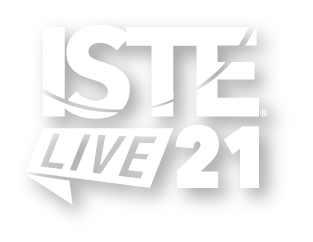

Teaching Amid the Chaos: Lessons Learned From the COVID-19 pandemic |
Participate and share : Poster
Dr. Jean Kiekel
K-12 teachers across the nation were thrust into emergency online teaching due to a global pandemic. This presentation details the frustrations teachers faced and examines the potential solutions that administrators and educator preparation programs can provide to ensure teachers will be able to respond to future calls for online teaching.
| Audience: | Chief technology officers/superintendents/school board members, Principals/head teachers, Professional developers |
| Skill level: | Beginner |
| Attendee devices: | Devices not needed |
| Topic: | Distance, online & blended learning |
| ISTE Standards: | For Coaches: Digital Age Learning Environments
Facilitator
|
| Additional detail: | ISTE author presentation |
With the onset of the COVID-19 pandemic during the spring 2020 (and extending into the fall 2020), K-12 schools were forced to move instructional delivery online while the country sheltered in place. While online teaching and learning is not new, it should be noted that online learning is not something that P-12 students are generally prepared for and evidence has shown that they may have more difficulty in this environment (Kiekel, Flores, & Walters, 2019). Much of the research that exists in this area is done at the university level rather than the K-12 level. Research at the K-12 level concentrates more on what to teach than how to teach (Borup & Evmenova, 2019). Teaching online is also very different from face-to-face teaching which is often not accounted for by teachers. While online learning can provide teachers opportunities to use technology in new and creative ways as well as explore new pedagogies for teaching and learning, without experience in online teaching those advantages are often lost. The sudden change in delivery that occurred this spring – from face-to-face to online instruction virtually overnight – created challenges for P-12 teachers due to the lack of experience teaching in such environments (Barber, Clark, Siko, Debruler & Bruno, 2019) and converting face-to-face practices for online delivery. This created a series of challenges for the K-12 teachers.
At present, there is no standard preparation for teachers at either the pre-service or in-service levels (DiPietro, Ferdig, Black & Preston, 2010). Teachers who are interested in doing so often search out their own professional development (Huss, 2019). Given the need to prepare pre-service and in-service teachers for a future where online learning can be implemented throughout the K-12 spectrum, it will become important for educator preparation programs to offer opportunities during pre-service coursework or in-service professional development.
For this presentation, teachers were surveyed regarding their experiences with the online shift to discover the frustrations that were experienced. This presentation will discuss some of the frustrations encountered by K-12 teachers and encourage discussion among participants as to ways educator preparation programs can support teachers in the ability to overcome some of the many frustrations voiced by participants.
Barbour, M.K., Clark, T., Siko, J., DeBruler, K., & Bruno, J. (2019). Cases of quality: Case studies of the approval and evaluation of K-12 online and blended providers. Online Journal of Distance Learning Administration, 22(1), 1-12.
Borup, J., & Evmenova, A.S. (2019). The effectiveness of professional development in overcoming obstacles to effective instruction in a College of Education. Online Learning, 23(2), 1-20. https://doi-org.ezproxy.stthom.edu/10.24059/olj.v23i2.1468
DiPietro, M., Ferdig, R.E., Black, E.W., & Preston, M. (2010). Best practices in teaching K-12 online: Lessons learned from Michigan Virtual School teachers. Journal of Interactive Online Learning, 9(3), 10-35.
Huss, R. (2018). Preparing teachers for the 21st century classroom. Internet Learning Journal, 15-29. https://doi-org.ezproxy.stthom.edu/10.18278/il.7.1.3.
Kiekel, J.M., Flores, S., Walters, N. (2019). Engaging online K-12 students: Using instant messaging to foster teacher-student relationships. In T. Hartshorne & T. Heafner (Eds). Advanced research and practice in K-12 online and blended learning (pp 193-212). Hershey, PA: IGI Global Publishing.

Dr. Jean Kiekel received her PhD from Kansas State University in Curriculum and Instruction. She is currently the Field Placement Director at the University of St Thomas. She has developed an online master's program in Instructional Technology at the university which will be a track under the C&I Master's degree program at UST. Her current research interests include instructional technology in K-12 classrooms, online learning, and teacher induction,